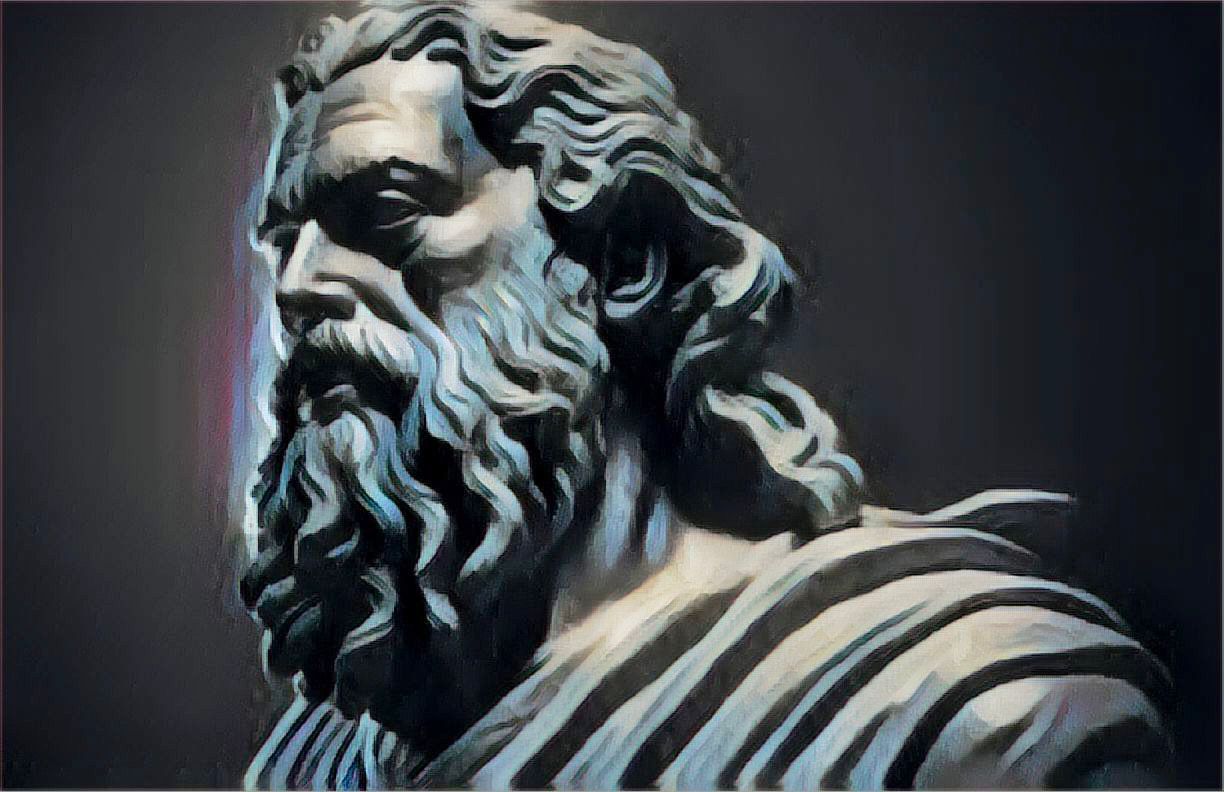
Every week, we invite you to explore a striking theme to reveal its depth and richness. These lapidary, often provocative formulas open up new perspectives on the intricacies of the human psyche. By deciphering these quotes with rigor and pedagogy, we invite you on a fascinating journey to the heart of psychoanalytic thought to better understand our desires, anxieties and relationships with others. Ready to dive into the deep waters of the unconscious?
"War is the mother of all things, the queen of all things."
Heraclitus's famous phrase, the ancient Greek philosopher, seems at first glance to praise violence and conflict. However, we will attempt to demonstrate that Heraclitus’s wisdom, in this quotation, aims to highlight the creative potential within any conflict. Far from glorifying war, this thought offers a complex view of the psychic dynamics, where oppositions, if properly understood and channeled, become sources of growth and creation. Psychic harmony, in fact, does not result from the absence of conflict but from the dynamic integration of oppositions. The parallel between Heraclitean war and the Eros-Thanatos duality naturally arises. These two fundamental drives, far from being merely antagonistic, form two sides of the same psychic coin. Their perpetual interaction generates the very dynamics of psychic life. True psychic strength lies in recognizing and accepting conflicts, whether internal or external, to better transform them rather than deny or project them onto others destructively. Each individual possesses a mechanism that, par excellence, channels violent impulses toward constructive expressions, resulting in a kind of psychic alchemy that turns the lead of conflict into the gold of creation. The much-sought-after psychic balance cannot be reduced to a static state; it is a perpetually renewed tension because mental health does not reside in the absence of conflict but in the ability to maintain a dynamic balance between opposing forces.
Risking preaching to the choir, we can only reiterate that conflict, whether external or internal, should push us toward peaceful resolution rather than sterile violence. Interpersonal conflicts, for instance, however challenging, are not only inevitable but essential to our relational vitality. They naturally belong to any human interaction and can be a source of mutual understanding through genuine dialogue, which, much more than confrontation, appears as the fundamental tool for transforming conflicts. Dialogue allows for a deep understanding of respective viewpoints, even opposing ones, finding creative solutions acceptable to all parties, and creating bridges of understanding rather than walls of misunderstanding between individuals. Can we not do the same in this volatile Middle East? Can we not recognize that differences are natural and potentially fruitful, to communicate openly, honestly, and empathetically rather than adopting a fundamentally suspicious and aggressive attitude? Can we not admit that, through courageous dialogue, a highly civilized alternative to destructive violence can emerge? That it is possible to achieve mutual understanding, to seek common solutions, to develop lasting peace, to peacefully resolve our differences, respecting each other’s rights? Some may find this idealistic, but as Théodore Monod wrote, "Utopia is not the unrealizable; it is what has not yet been realized."
In the face of inevitable and necessary conflict, true wisdom lies in seeking resolution through words rather than arms. Psychoanalytic therapy itself can be understood as a space where psychic conflicts are recognized and transformed. The analytical framework allows for a quest for a certain harmony derived from opposing tensions. Conflict resolution does not involve its simplistic denial or avoiding tension by, for instance, focusing only on “the positive,” nor does it, a fortiori, involve the overwhelming victory of one side over the other. Rather, it resides in the progressive integration of opposites, the creative transformation of contradictory impulses, and the clear-eyed acceptance of the complexity of our inner and outer worlds. A person can develop the ability to turn conflicts into sources of growth, notably through the rediscovery of their subjectivity and its liberating effects. The war Heraclitus speaks of cannot be understood as an endorsement of destructive violence but rather as a permanent internal struggle between love and hate, between Eros and Thanatos, so that the individual is not enslaved by their destructive impulses.
History offers edifying examples: the legacies of great leaders like Mohandas Karamchand Gandhi, Martin Luther King, and Nelson Mandela demonstrate vividly that even the deepest and most entrenched conflicts can be resolved by nonviolent means. Their example proves that true strength and courage lie in the willingness to transform conflict rather than fuel it with violence. The power of passive resistance, as practiced by these historical figures, shows that political and social changes achieved through persuasion, perseverance, and non-cooperation are often more lasting than those imposed through coercion and brute force. Nonviolence, far from being a weakness, thus becomes a more powerful and transformative force than violence itself.
Instead of denying conflict, these visionary leaders developed concrete and creative methods to sublimate it and transform it into a driver of timely political change through the strategic use of passive resistance, the cultivation of genuine dialogue even with opponents, and the establishment of peaceful economic boycotts. Their nonviolent movements have undeniably demonstrated that major and revolutionary political changes are possible without resorting to violence, that organized passive resistance can overcome even the most powerful oppressive systems, and that genuine, persistent dialogue can replace barbaric, sterile confrontation.
In this Middle Eastern region marked by growing complexity, anxiety-inducing uncertainty, and heightened tensions, Heraclitean wisdom offers a valuable conceptual framework to approach political and social conflicts of our troubled times in a civilized manner. It is a resounding call to cultivate our humanity at its highest: the relentless pursuit of understanding oneself and others.



Comments